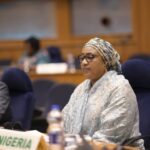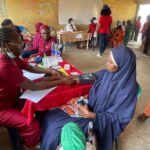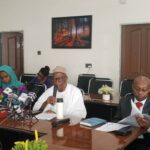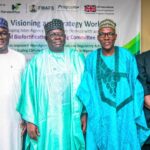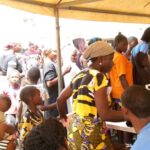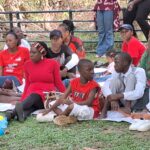By Oluwafunke Ishola
A non-governmental organisation, Foundation for Resilient Empowerment and Development (FRED), has appealed for sustainability and expansion of resources to strengthen gender-based violence programmes across the country.
Mrs Rosemary Echewe, Project Director, FRED, said this during the visit of the Spotlight Initiative Africa Regional Programme (SIARP) Review and Learning Workshop members on Wednesday in Lagos.
SIARP visited Speedmeals Culinary School, a UNDP Spotlight Initiative livelihood pathway programme, implemented by FRED.
Echewe said this as part of learnings and recommendations implementing the Spotlight Initiative Project in Nigeria.
The Spotlight Initiative Project is a partnership between the European Union and the United Nations and is the flagship project on the elimination of all forms of violence against women and girls in Nigeria.
It brings in a unique approach to addressing social protection intervention from a gender and human rights perspective.
UNDP Nigeria, in collaboration with other UN Agencies, currently implements the EU-UN Spotlight Initiative on Ending Violence against Women and Girls (EVAWGs) with an aim to support a Nigeria where all women and girls, particularly the most vulnerable, live a life free from all forms of violence and harmful practices.
As the Spotlight Initiative programme winds down in December, Echewe said that partners would strive to build upon the programme successes to strengthen GBV advocacy and prevention in the country.
Echewe said that FRED, a UNDP Spotlight Initiative project partner, had implemented various programmes to ensure that women are self-sustained and supported, particularly women living with disabilities (PLWD) to reduce their susceptibility to GBV.
According to her, UNDP Spotlight Initiative livelihood pathway programme includes financial literacy, business registration, seed grants, and start-up kits to empower beneficiaries from individuals to small business owners.
“Since 2021, over 288 vulnerable women and girls who are survivors of GBV graduated from the UNDP-supported livelihood pathway integration programme in our Abuja and Lagos centres.
“They were provided with seed grants and start-up kits to help them get started,” she said.
The beneficiaries who were survivors of SGBV were trained on fashion designing, culinary skills, hairdressing, shoe making and baking.
Echewe called for expansion of gender project budget to enable partners to reach more survivors, extend to more states and deepen the empowerment impact of GBV survivors.
On the process of selecting the beneficiaries, Echewe said they come through government agencies such as Women Affairs Poverty Alleviation (WAPA) Lagos State; Domestic and Sexual Violence Agency; Lagos State Office for Disability Affairs (LASODA), among others.
A beneficiary of the programme, who introduced herself as ‘Blessing’, said her participation in the training in 2021 had assisted to empower her as a fashion designer.
“I make clothes for people in Nigeria and outside the country. I am able to take care of myself without depending on anyone,” she said.
Similarly, Shakira Ibrahim, another beneficiary of the programme, said that having a livelihood had reduced her vulnerabilities and enhanced her self-reliance.
Ms Kori Habib, the Media Associate, UN Population Fund (UNFPA) in Nigeria, said the Spotlight Initiative project had been catalytic in bringing gender issues to the forefront with government backing it.
Habib noted that reporting and response had improved, acknowledging that more interventions would be required by partners, donors and government to bridge the gaps.
Spotlight Initiative in Nigeria began implementation in January 2019 with the aim of achieving a country where all women and girls, particularly the most vulnerable, live a life free from violence and harmful practices.
The News Agency of Nigeria (NAN) reports that the SIARP programme has developed a country level sustainability strategy.
The project secured a strong basis for sustainability through the buy-in of the government and critical stakeholders at all levels.
The Nigeria project hinges on six pillars namely laws and policies; institutions; prevention; services; data;CSOs and work omen’s movement. (NAN)
Edited by Olawunmi Ashafa


